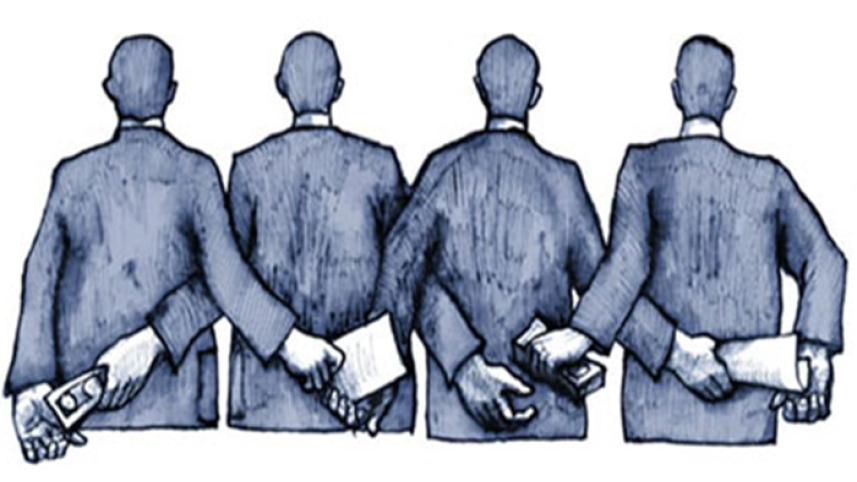When Corruption rules

Corruption seems to be the order of the day, as revealed by the TIB National Household Survey 2015, with about 70 percent households falling victim to it while accessing basic services such as passport, law enforcement, education, BRTA, land administration, judiciary, health, etc. It is odious that citizens have to cough up cash to avail services that should come free to them.
It is the common man who has been the worst hit. About 75 percent households had to bribe law enforcement agencies while 60 percent had to grease the educational institutions for registration and admission. Meanwhile, the legal system, which is meant to prevent such malfeasance, is not far behind in the corruption index.
The authorities, as usual, are in denial. The home secretary rejected outright the findings on law enforcement agencies while the passport and immigration boss, reportedly, claimed the survey to be outdated. Such outright rejection of hard data amounts to acquiescence to the crime. The authorities should look at the survey as an opportunity to improve the state of things, instead of rebuffing it. Denial will encourage corruption.
The government should start with ending the pervasive culture of impunity. Shakedowns in the form of transfer of top officials -- the typical reaction of the government – do little to curb corrupt practices. If the institutions intended to fight corruption have lost their tooth those should be restored. Countries that have been successful in reducing this menace have done so by adopting a multi-pronged approach including introducing tougher new laws and enforcing them.



 For all latest news, follow The Daily Star's Google News channel.
For all latest news, follow The Daily Star's Google News channel.